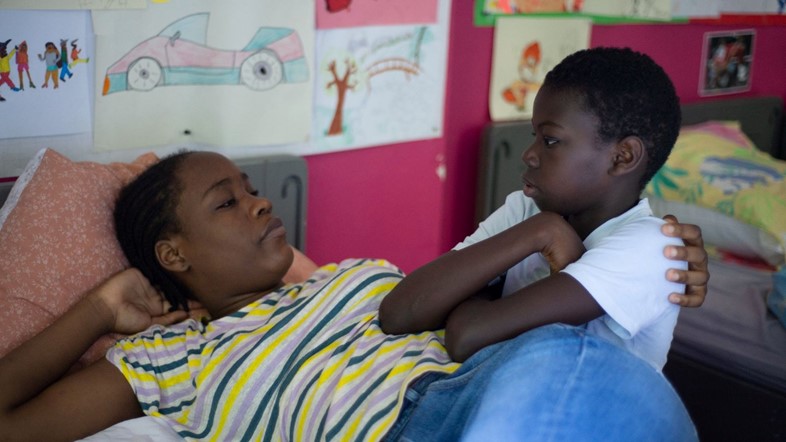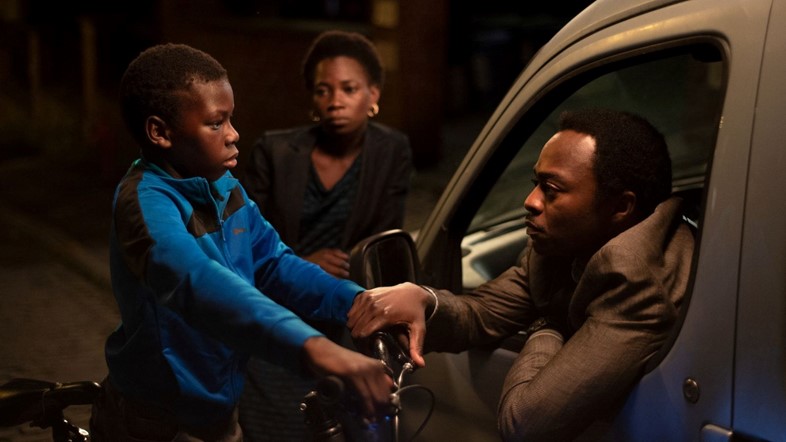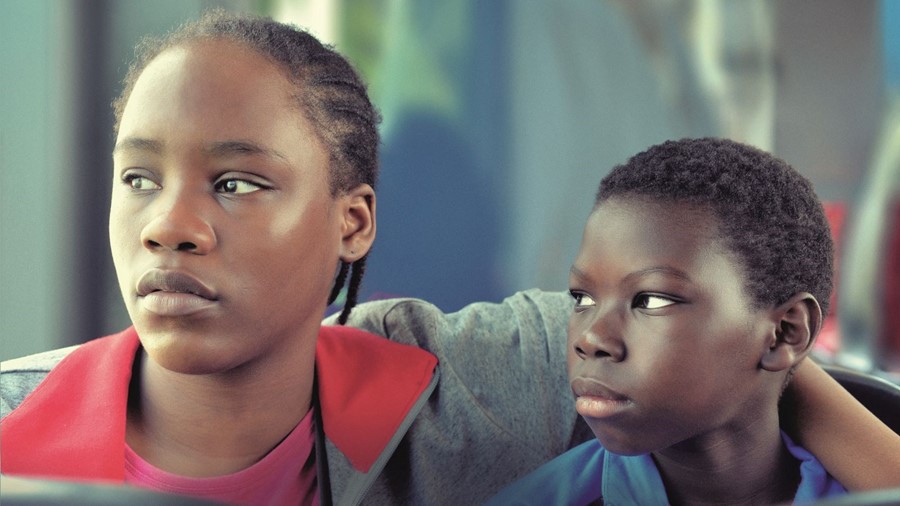As Tori and Lokita hits UK cinemas, the Belgian filmmaking duo talk about the plight of young migrants, and anger as a motivating force for art
Jean-Pierre and Luc Dardenne were battling injustice when Rosetta, a primal scream about an impoverished Belgian family, won the Palme d’Or in 1999, and they were still furious when L’Enfant, another hard-hitting attack on societal inequality, snagged them the top prize at Cannes a second time in 2005. This year, Tori and Lokita, another prize-winner at Cannes, was proclaimed by IndieWire to be “the angriest movie the Dardenne brothers have ever made”.
In a Mayfair hotel during the London Film Festival, I read the quote aloud to the Dardennes via an interpreter. “It’s true,” replies Luc, 68. “We were indeed angry, and this anger motivated us to make this film, particularly when we found out there’s a huge number of unaccompanied minors who disappear. No one seems to worry about it. That absolutely has to change.”
As usual, the Dardenne brothers fastidiously delved into the subject matter before penning a script, on this occasion visiting refugee centres to hear firsthand experiences. At the centre of Tori and Lokita, Tori (Pablo Schils) and Lokita (Joely Mbundu), aged 11 and 16, are migrants who escaped Cameroon and Benin to find themselves in exile in Belgium. Pretending to be siblings, the two youngsters barely survive in the Liège region: Tori delivers drugs for a pizza restaurant owner; Lokita, trying to raise money for her family back in Africa, becomes a cannabis farmer in an underground bunker where she’s sexually assaulted and blackmailed. Given their emotional reliance on the other, Tori and Lokita form a bond that may as well be biological.
“We read articles by doctors, psychiatrists, and social care workers about unaccompanied exiled minors,” says Jean-Pierre, 71. “They spoke about a new kind of loneliness that causes illnesses in young people that we didn’t know existed before, and probably didn’t exist before. That’s why it was so important for them to have that friendship.” “We put in the centre of our frame the people who are the most vulnerable in our western society right now,” says Luc. “What they’re experiencing shouldn’t be experienced by children. The strength of their friendship means they can live through it.”
The Belgian duo are known for artful, heartbreaking dramas that bring political issues to cinema screens. Their trademark shot, lugging the camera over the protagonist’s shoulder, places the viewer in the position of the oppressed, often using long, unbroken takes that build up unbearable tension. In other words, everyone knows that a Dardenne brothers movie will be a heavy, emotionally draining experience. What’s less publicised is that the Dardennes, in person, are hilarious. Jean-Pierre jokes that the hotel’s wobbly table is an example of Brexit. Luc quizzes me on whether I prefer Tori and Lokita or Breaking Bad, a show he didn’t know existed until I bring it up mid-conversation.

When Lokita is effectively imprisoned in her bunker, doomed for a period of isolation with cannabis plants, it’s redolent of the later seasons of Breaking Bad when even long-term fans questioned the show’s plausibility. The Dardennes, though, gracefully integrate a popcorn element into their grounded, meticulously researched storytelling. “The two children are in a world where there aren’t laws,” says Jean-Pierre. “There are just rules. If you don’t respect the rules, you’re done. And in order to obtain something, there’s always a negotiation with people. And she has to escape the prison. But in our films, we’ve always had a thriller aspect, like in Lorna’s Silence and The Promise.”
While the Dardennes make their shot composition look easy, they explain the intricacies of their style. For instance, when Lokita walks into a room, the camera can’t be behind the character if it’s a door that instantly shuts. Moreover, due to the height disparity between Tori and Lokita, weeks of planning went into ensuring the duo would naturally appear in the frame together. “It’s through rehearsals that you get it,” says Luc. “Without rehearsing, it’s a mess.”
Through their filmography, the Dardennes have often worked with major French-speaking stars: Marion Cotillard in Two Days, One Night, Adèle Haenel in The Unknown Girl, and Jérémie Renier (Belgium’s Jeremy Renner) in several more. However, Schils and Mbundu were first-time, non-professional actors. “Joely was 16 but still had a childlike smile,” says Jean-Pierre. “Pablo’s tiny, but there’s a fire in his eyes.” “We did five weeks of rehearsals leading up to the shoot,” says Luc. “In the first few days, we did what you’re not supposed to do with children: we showed them how to do the movements, going from A to B, and the speed of the walk, and hoped they would find their version of it. Luckily, they did.”

In an early draft from a decade ago, Tori and Loki were literal siblings whose mother sent them off to Belgium. Presumably the Dardennes have numerous co-written scripts waiting to be produced. I mention that the Coen brothers recently went their separate ways: Joel directed a black-and-white Shakespeare adaptation, while Ethan is shooting a trashy sex comedy romp. Do the Dardennes have contrasting solo passion projects? “I’m so lazy,” Luc deadpans. “I’m not sure I’d want to work alone.”
In the meantime, Tori and Lokita is stirring up conversation in Belgium. Luc informs me that a homelessness charity is setting up screenings and asking the brothers to do Q&As. “They’re an organisation that helps find accommodation for immigrants without a home,” Luc continues. “They want to show it to parliament. Also, there are lots of requests from schools to organise screenings.” A comic pause. “And also the Mafia, but we refused.” “He’s joking, he’s joking,” says Jean-Pierre, who can’t resist joining in with the gag. “[The Mafia] pave their cinema seats in gold.”
Tori and Lokita is out exclusively in UK cinemas on December 2. The Dardenne Brothers will be doing Q&A screenings in London and Brighton over the opening weekend.
